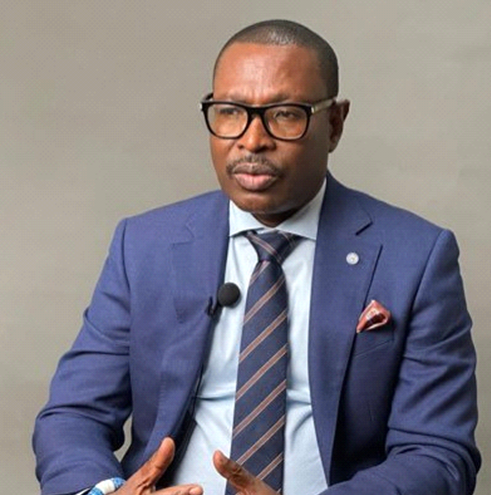
By Joshua Worlasi AMLANU ([email protected])
Government plans to mobilise US$4billion for its 24-hour economy initiative by leveraging blended finance, pension funds and diaspora capital.
With a seed capital of US$300million, government expects to initiate its programme under the FUND24 framework. The remaining 90 percent is expected to come from private sources through a mix of equity, concessional lending and innovative instruments such as diaspora bonds.
The flagship programme aims to promote inclusive growth and job creation by extending economic activity beyond conventional working hours.
Dr. Ishmael Nii Amanor Dodoo, head of innovation, partnerships and markets at the 24-Hour Economy Secretariat, following a media engagement, told Business & Financial Times that the plan is anchored on two financing tracks: enterprise financing for SMEs and infrastructure financing through special purpose vehicles (SPVs).
Development Bank Ghana (DBG) will lead the enterprise finance track, managing a revolving fund worth between US$1billion and US$1.5billion. This facility will be extended to small and medium enterprises with concessional terms – interest rates below 10 percent and loan tenors of three to five years.
A grant component of 20 to 30 percent will be used to de-risk investments and support SME capacity-building to make projects bankable.
“This is patient capital,” said Dr. Dodoo. “We are not just lending; we’re building pipelines, strengthening governance and aligning SMEs along viable value chains.”
SMEs will also benefit from technical assistance and financial advisory services, with additional safeguards including insurance products and cooperative-based credit guarantees to further reduce the risk of default.
On the infrastructure side, Ghana Infrastructure Investment Fund (GIIF) is establishing three major SPVs to develop agroecological industrial parks in Agbledu and Wumbei, as well as inland water transport systems. These SPVs will serve as vehicles to attract private capital from sources such as Africa50, Afreximbank, African Development Bank and the World Bank.
According to Dr. Dodoo: “SPVs provide a structure that allows private sector actors to invest directly into infrastructure assets. These are not just projects, we are building ecosystems around cold chains, irrigation, energy and logistics”.
The plan also includes establishing a Value Chain Financing Facility (VCFF) to disburse US$1billion in SME loans through banks, non-bank financial institutions and cooperatives. This facility is intended to address what government officials have described as a “systemic barrier” in Ghana’s financial architecture – the lack of long-term, affordable credit for enterprises.
To further diversify funding sources, government is engaging domestic and international pension funds, impact investors and development finance institutions. Ghana’s pension industry, currently managing around US$25billion in alternative investment allocations, will play a pivotal role in co-financing SPVs and enterprise development vehicles.
Dr. Dodoo noted that both public and private pension funds have signed up to the scheme. “There is appetite among asset owners for investments that are impact-aligned but commercially viable. We are creating those channels.”
Other funding instruments under consideration include climate finance, pooled trust funds, equity funds and diaspora-targetted products such as diaspora bonds.
He said the Secretariat is exploring how to channel remittances into productive investments through peer-to-peer platforms.
While the initiative has attracted early interest from institutions such as the Islamic Development Bank, UNDP, IFAD and Mastercard Foundation, Dr. Dodoo emphasised that execution depends on building credible pipelines for projects and ensuring disciplined use of proceeds.
“There is a lot of private capital looking for real economy assets in Africa. Our job is to organise the investment-ready enterprises and infrastructure around Ghana’s strategic value chains,” he said.
The 24-hour economy policy forms part of government’s broader effort to industrialise agriculture, strengthen supply chains and support sectors such as textiles, creative arts, machinery fabrication and logistics. The initiative includes a mentorship scheme that links experienced agribusiness operators with younger entrepreneurs to scale production and standardise quality.









